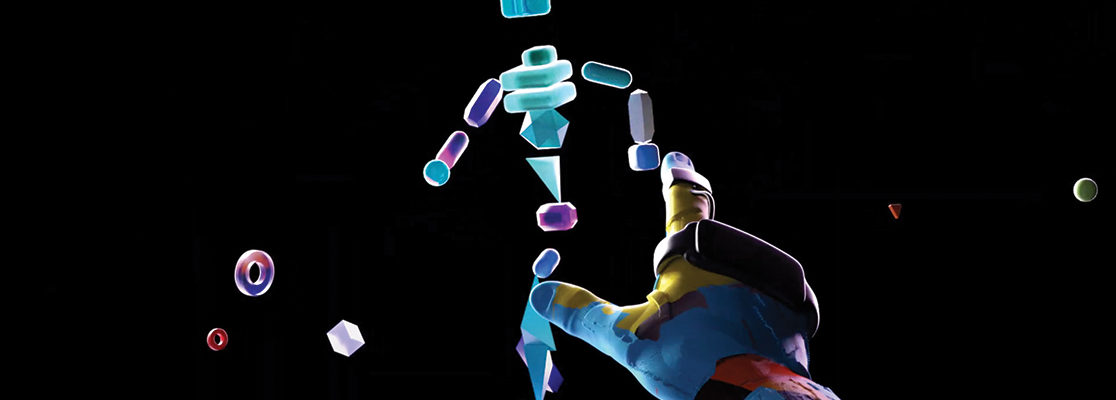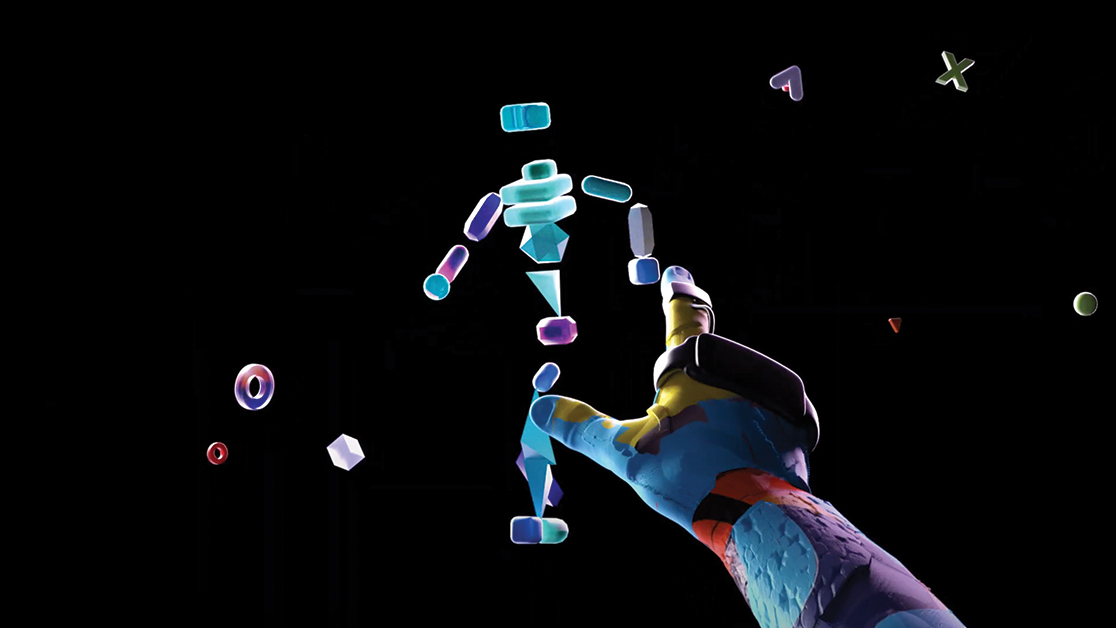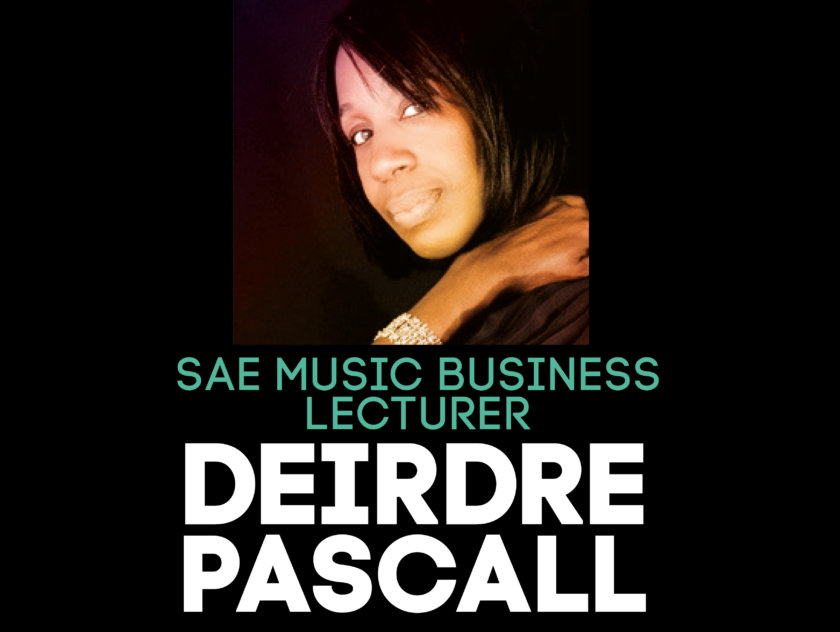To celebrate International Women’s Day (IWD), we sat down with Deirdre Pascall, one of our expert lecturers on our Music Business Degree. We touched on topics such as Deirdre’s career, what IWD means to her and her essential tips on succeeding as a woman in the music industry. You can get in contact with our team to learn more about our degrees in music business.
What does IWD mean to you?
IWD invites us to read about or take in an exciting ‘global day-gaze’ into the lives of women who originate from cultures outside our own.
Each are generally making committed differences in their communities. It is a day to celebrate the great steps women are taking – be it socially, economically, politically or creatively. It inspires growth, dedication and necessary innovation – all of which are important to me.
My first experience of IWD was while teaching in a London school with a diverse range of students. Among them were a contingent of students from Romanian heritage who celebrated IWD by introducing a customary tradition of males presenting flowers to all females in their lives as a token of their appreciation. It was a new experience to see students and staff alike be approached by well turned-out young men – brimming with confidence – presenting them with flowers. IWD generated a sense of confidence in students that they previously seemed not to have, and reduced classroom disquiet at least for that week. It was a pleasant surprise and a memorable event, because they made it so and it fostered fresh cultural exchange and discussions.
Why did you choose to become a music business lecturer?
I didn’t … it just made sense when the opportunity arose to leverage my music knowledge and expertise to further expand my lecturing to higher education.
I am also genetically wired to be better at being myself and with a family history rooted in three generations of teaching and entrepreneurship, family links to music industry professionals and more recently two generations of filmmakers, media/cultural legacy curation and creative partnerships, it became a natural next step.
How did you start your music business journey?
I began honing my skills as a music professional at the Royal College of Music as a Junior Exhibitioner, experiencing the ups and downs as a professional Black musician in a less diverse arts world than we now operate within.
I discovered at aged 11 that I was already engaged in the profession I loved and became absorbed in the ‘Business of music’. I learned a lot through the work of my parents who are also musicians and published their own works in a cultural environment not in favour of inclusivity. Hence, my Good Vibes Records and Music was born and later, BAMAAPC – a cultural media archive collection.
Of course, I appreciate my good fortune as my journey is cloaked with rare privilege that has shaped my perspectives and professional experiences.
I had the good fortune to have met and listened to hundreds of interviews that my father, Alex Pascall, conducted while he broadcast on the BBC show, Black Londoners. I am proud to be able to say that my father campaigned for young people to get their start in broadcasting. Each young person had the opportunity to work alongside him – prior to this, such access was not deemed viable. By encouraging independence, many have gone on to forge careers within the creative industries. As I’ve observed this as a working method, I have advocated for true life experiences wherever possible to nurture professional experience and transport theory into practice.
Who is a woman that inspires you from the music business industry and why?
My mum, Joyce Pascall. I’m fortunate to be one of her two children when she had the confidence to successfully go from being a nurse and watercolour artist to co-founding the Alex Pascall Singers,a multi-cultural 20-piece choir who performed at the Talk Of The Town in London’s West End. She navigated negative society push back and faced racism without disrupting her goals – who couldn’t be inspired by that!
Like many mothers, she decided to leave the nursing profession to help raise my little brother and I. Her entrepreneurial works evolved into a promotions company co-founded by my father. She became a booking agent supplying Caribbean and South Pacific island dancers and Caribbean steelbands to some of the best Italian restaurants, West End venues, and community events.
For the 14 years my father was broadcasting his interviews and works, my mother curated them and is an equal shareholder of their co-partnership. My dad has licensed his works to BBC mainstream media since 1974.
What is the most important advice you’d give to a woman thinking of starting a career in music business?
I’d say develop curiousity for the business of the creative industries. Explore ways to incorporate this creatively in your recreational time. If you like travel, perhaps explore one or two venues, research or pay more attention to the acoustic design/architects vision. The insight may become invaluable to you long-term.
Music business involves expanding your knowledge through research and networking as best you can to seek out opportunities so you can practice the art of promotion.
I recommend The Brand Symphony – Orchestrate your marketing strategy and scale your service business by Jill Pringle and Nelson George’s The Death of Rhythm and Blues. As well as those, Michael de Koningh & Laurence Cane-Honeysett’s Young Gifted and Black – The Story of Trojan Records.
how can we more effectively showcase and celebrate the work of women – especially in the music business?
Showcasing and celebrating is like applause, there’s few things like it. Award it. Extending kindness is a skill set that assists for professionals to be seen rather than seem invisible.
American Greetings Card have made an industry based on consideration and use music and or music celebrity song adaptations to support product sales. International broadcaster and global business woman Oprah demonstrated a range a methods within her TV show to explore, inspire and celebrate women.
You can visit the BFI near Waterloo station for their array of affordable programming of films and student rates available.
I’ve only recently become aware of Qiana Coachman-Strickland and DJ Anna Haleta, born in Ukraine who moved to Israel when she was 15 and started her interest in EDM while studying art there. Haleta’s experience in a male dominated industry in Israel, prompts reflections upon British artist, Sonique’s journey to recognition and music industry success too.
Awards like Oram Awards offering talented females in music and sound bursaries from the PRS Foundation and forums on music business can assist female creatives immeasurably. De-mystifying funding barriers available for creatives, could also assist them – as many students in higher education are visibly fearful of the idea of applying.
how can we work together to remove bias, stereotypes and discrimination against women in the music business industry?
The serial issues raised in this question have been asked throughout my life. I have experienced racial discrimination within the industry more than gender related discrimination. So, broadly speaking, I’d recommend forging alliances with national and international industry executives open to facilitating change.
You can also support surveys to investigate why the percentage of women of diverse heritage thrive in the business franchise market. Perhaps they have tools in their kit that are transferable within music business?
Straight forward legal solutions could be promoted in the mainstream and in consultation with victims. Opening up the discourse will provide the opportunity for better prescriptions to be adjudicated by diverse heritage groups, a knowledgeable pool of lateral thinking experts and diverse members of society.
We are conditioned from birth to work and function in accordance with laws. There’s always a percentage that break the law, hence our need for innovative entertainment and discrimination. Many Black and international people have either died leading this pursuit or had the trajectory of their life negatively maneuvered. I am resolute that I won’t allow anyone or any group to reduce my humanity and purpose. You ask what can we do? When it does occur within the industry, perhaps Marianne Williamson’s perspective can be of use, in her words:
“Our deepest fear is not that we are inadequate. Our deepest fear is that we are powerful beyond measure”.
What are some of the challenges that you have faced working in a male dominated environment? How did you overcome them?
Any such challenges generally arise from a lack of specialist industry knowledge. In such instances, be unflappable, don’t lose sight of your expertise and goals. Be strengthened by them.
Another approach could be to enhance your unique skill sets and keep in touch with industry perspectives, professionals and changes on the ground to be assured.
How important is it for women to lift each other up in the music business industry and what does that mean for you?
There’s a warming dose of co-operation and support from the female contingents within SAE within each department – which I regard as impressive. It allows for more knowledge sharing, compassion, and open-mindedness.
What can be further done to achieve equality within the music business industry?
In my experience, people have a better chance of understanding inequality if they experience it. That can go some distance towards redressing the imbalance.
The artist Prince stated:
“I was brought up in a black and white world. I dig black and white night and day, rich and poor, man and woman. I listen to all kinds of music and I want to be judged on the quality of my work, not on what I say, nor on what people claim I am, nor on the colour of my skin”
People discriminate far less, it seems, with international foods in the 21st century. It would be an achievement to have that level of success with equality across the board.
What is the most important message you want to send out to young women thinking about starting their careers in music business?
Here are my top 10 tips:
- If you consider yourself shy, seek out and attend in person business groups for women. They offer lots of insight, training workshops and opportunities to network and inspires confidence building. Embrace your homework/research. It makes everything you face much easier to navigate and also provides a level of confidence and helps identify what you know you should do next.
- Do not dismiss professional opportunities for a paid internship on offer in person.
- Make and keep critical connections that lead to business deals and partnerships and that strengthen global and economic empowerment for women of all ages. They can also enhance wellbeing and relationships between genders.
- Sharpen your tools and take part in this industry beyond the university bubble. Visit cultural events outside of your own to expand your audience development ideas and views.
- Include initiatives within your projects where possible to unite people and ideas to help resolve the challenges of our time. Ukrainian musicians have appealed to Apple Music and Spotify to demonstrate support for their country at a time of crisis.
- Business becomes easier if you recognise the range of music business landscapes before you, employ teamwork and communicate clear objectives.
- Avoid unethical manoeuvres, especially among your peers. There are many evidences of the turmoil this creates in the cultural and creative industries and music industry.
- Keep written agreements for clarity later on.
- Peruse entertainment court case documents about artists and creatives you admire – super insightful, as the opportunity to enter entertainment law was not encouraged while I was in school in the seventies.
- Be open to research and actively adapting it to suit your goals. If reading isn’t not your strength, perhaps films/documentaries can assist your casual information intake to gain professional industry insight available to reference, as you explore and hone your own skills. Be brave.
Want to start building your music industry career? Keep exploring our blog.
Study Music Business at SAE
Studying our leading course will give you a comprehensive education in labels, publishing, management, touring, distribution, and live event management.
You will have the opportunity to collaborate with an exciting student body to record your artists, film music videos and begin to plan your own career in one of the world’s most exciting industries.


































